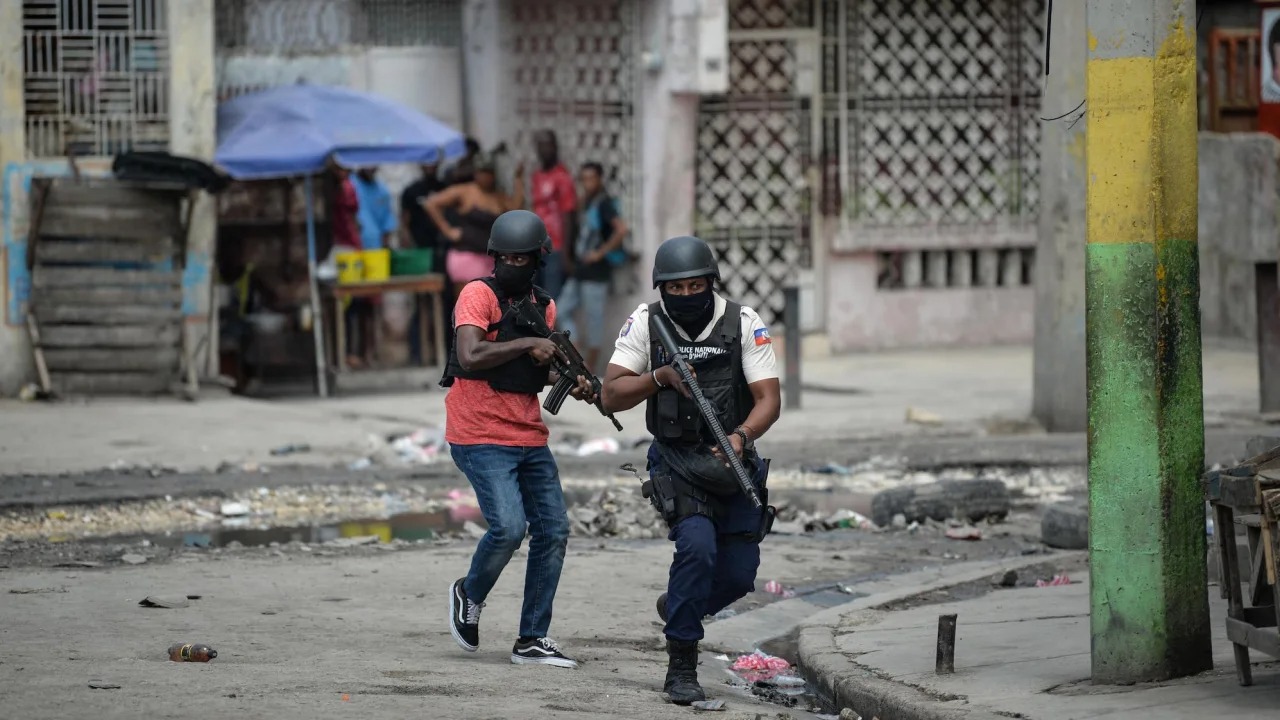The United Nations Security Council has granted approval for the deployment of an international armed force to Haiti. The move comes as Haiti grapples with soaring gang violence and political turmoil, with calls for military assistance echoing from both Haitian Prime Minister Ariel Henry and global leaders.
International Support for Haiti’s Plea
The United Nations Security Council has taken a monumental step by endorsing the deployment of a multinational force to restore order in Haiti, which is currently besieged by a wave of violent gang activity and political instability. This critical decision was reached after fervent appeals for assistance from Haitian Prime Minister Ariel Henry, who sought international backing to address the dire situation. United Nations Secretary-General Antonio Guterres, along with the United States, also rallied behind the call for action.
Global Consensus with Some Abstentions
The resolution received overwhelming support from thirteen members of the Security Council, reflecting a global consensus on the urgency of the matter. Notably, Russia and China abstained from voting, but their decision does not deter the mission’s progress. While this international force will operate with a mandate distinct from the UN, it will be led by Kenya, which has pledged 1000 police personnel to spearhead the mission. Furthermore, several neighboring Caribbean nations, including Antigua and Barbuda, the Bahamas, and Jamaica, have offered their support to the initiative.
A Multinational Security Force to Tackle Haiti’s Crisis
The approved “multinational security support” force will be tasked with a 12-month mandate to bring stability to Haiti. The exact timeline of its deployment remains uncertain, and additional countries are invited to participate in this mission. The resolution also includes a call for a global cessation of arms sales to Haiti, except for approved security purposes.
An adviser to Prime Minister Henry, Jean-Junior Joseph, expressed Haiti’s eagerness for the mission, stating, “We await with impatience the mission to combat general insecurity.”
Gang Violence Plagues Haiti
Haiti, particularly its capital city and main port, Port-au-Prince, is under the control of warring gangs, severely impacting vital supply routes and safety for residents. Gang members have unleashed a reign of terror, prompting approximately 200,000 people to flee their homes, as indiscriminate violence, kidnappings, arson, and sexual assault run rampant.
This mission is expected to reinforce local security and provide crucial support to the understaffed and outgunned Haitian National Police. While international support has been extended to Haiti’s security forces previously, they continue to grapple with the overwhelming crisis.
Addressing the United Nations General Assembly in New York on September 22, Prime Minister Henry emphasized the urgency of the Security Council’s approval, highlighting how violence has fueled broader instability. Henry also pointed out that inflation has skyrocketed past 50%, pushing 4.9 million Haitians to the brink of hunger—a grim milestone for the country.
Global Support and Diplomacy
US Secretary of State Antony Blinken, in a statement on the same day as the Security Council decision, urged the international community to stand behind the mission and provide assistance, including personnel. The United States is ready to offer robust financial and logistical support to ensure the mission’s success.
The Security Council’s ability to reach a consensus on Haiti’s crisis has been seen as a historic moment, given recent geopolitical tensions. US Ambassador to the UN Linda Thomas-Greenfield described the decision as “historic” and a testament to the UN’s capacity to mobilize collective action.
China’s UN ambassador, Zhang Jun, while abstaining from the vote, characterized it as a “constructive position” toward the resolution. Russia’s UN envoy, Vassily Nebenzia, expressed reservations about sending armed forces to another country but acknowledged “some positive elements” in the approved resolution. Both nations, however, supported the resolution’s arms embargo.
Challenges and Critics
Critics of the mission have cited past scandals associated with UN peacekeeping missions in Haiti, including allegations of sexual abuse and the introduction of a deadly cholera epidemic that claimed nearly 10,000 lives. Additionally, some Haitians have questioned Prime Minister Henry’s mandate, as he assumed leadership following the assassination of President Jovenel Moise in 2021. Henry has argued that holding long-overdue elections is contingent on achieving a basic level of security.
Maria Isabel Salvador, the United Nations’ special representative in Haiti, assured support for the mission within the confines of its mandate, emphasizing that the “MSS mission is not a UN mission,” distinguishing it from previous international missions deployed in Haiti.
















